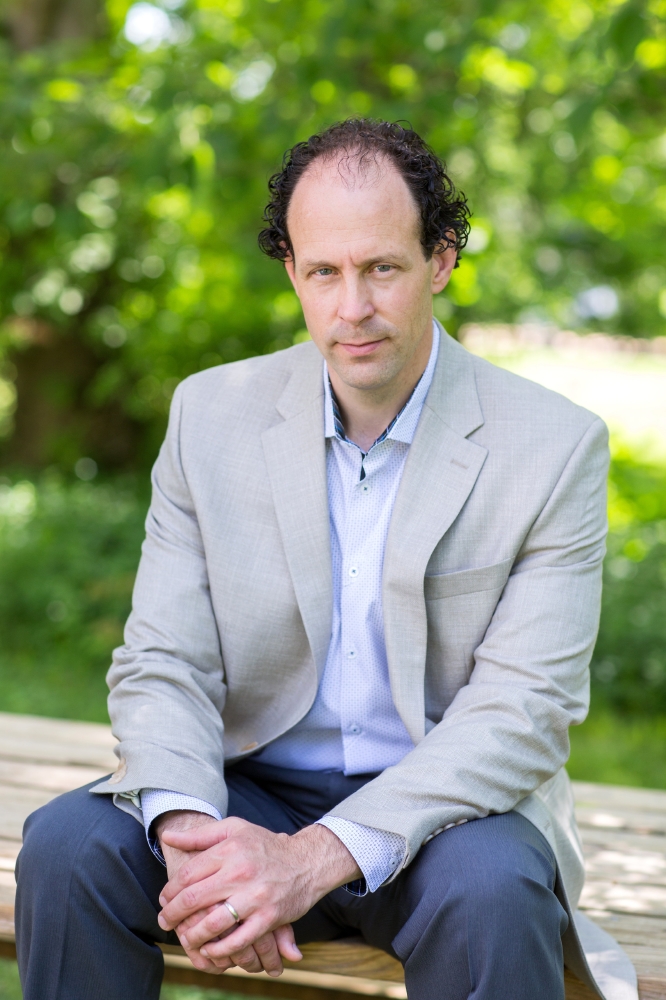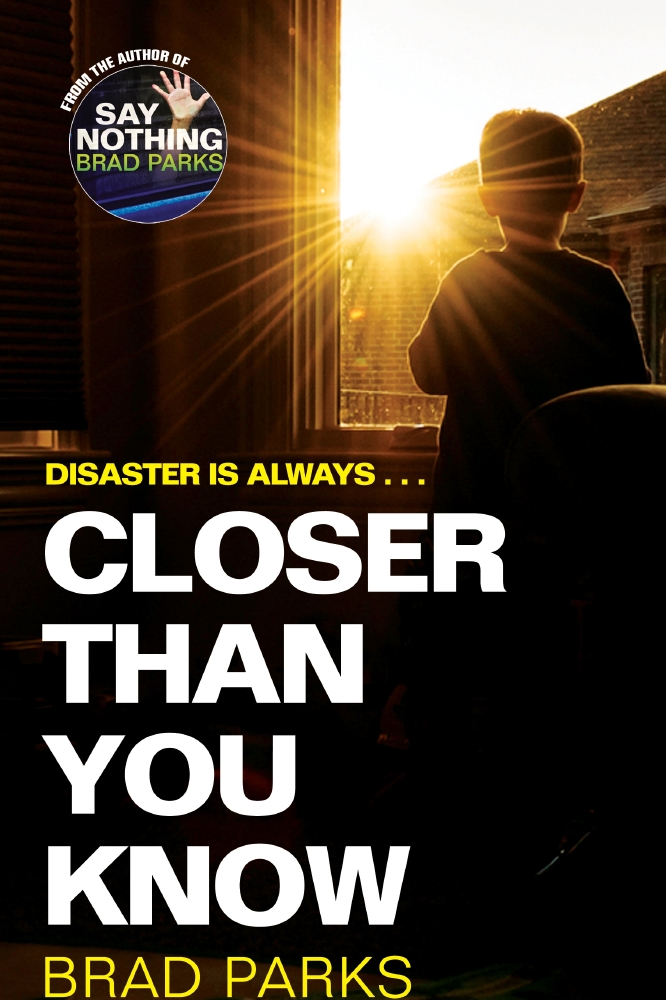It was an audition—only it was designed for a writer.

Brad Parks by Sara Harris
I was a tender twenty-four years old, desperate to land this prized gig at an important daily newspaper, and my challenge was to take another reporter’s notes on a story about a car crash and type it up as my own.
This, I quickly discovered, was like being asked to perform surgery with a blindfold and oven mitts on. The notes were riddled with holes:
Were there wet leaves on the road? Had a nearby farmer heard the angry blare of horns followed by the sick shriek of metal? Was, in fact, the driver of the vehicle having a tryst with the fiancée of the auto mechanic who had been working on the car’s breaks that very afternoon?
(Okay, that last part may be the penchant for fiction that eventually led me into my current profession. Whatever).
But as I got righteously angry at whatever dunderheaded reporter had failed to ask these, duh, obvious questions, I realized something. What I missed most were actually the kind of things I wouldn’t have bothered writing down in my notebook either; things that I observed, smelled, felt, intuited or soaked up simply by being at the scene; things that I didn’t even realize mattered until later, when I finally plunked myself in front of a keyboard.
This was when I learned what I now call The Importance of Hanging Around. It applies whether you’re talking about brief newspaper articles or full-length manuscripts. And I have come to believe it is perhaps the most critical aspect of researching a novel.
There is simply no substitute for placing yourself where your book is set and simply spending some idle time there, watching the leaves drop, chatting with the farmer, spying the smudge of lipstick on the driver’s collar.
(Even though the lipstick would probably be camouflaged by the blood from the car crash until later, when the brilliant forensic scientist spied it under a microscope and immediately divined that it was L’Oreal Colour Riche Peach Fuzz 417, the brand known to be worn by the fiancée. But I digress)
All of which brings me to one of my favorite passages in Closer Than You Know, my latest novel. The protagonist is a woman, Melanie Barrick, who comes back from work one day to learn her baby has been taken away from her by child protective services—and no one will tell her why.
I knew next to nothing about the rules and procedures of child protective services before I started writing. So, dutiful researcher that I am, I talked to social workers, lawyers, a judge, and so on.
But the most vital thing I did, as usual, was simply hang around my local Juvenile & Domestic Relations Court, which is where so much of the sad drama of this conflicted world played out. It’s a place Melanie knows well: She was a ward of the state herself, sent into foster care at age nine by her abusive father and drug addict mother.
And so, just before her court time, she’s in a coffee shop, trying to fortify herself with tea and a scone, having this recollection about her childhood experiences in Juvenile & Domestic Relations Court:
Mostly, I remembered the women. There was such sadness about them. It wasn’t just that they had lost their pride, their self-esteem, or their looks; or that some of them had bruises or scars; or that they were overwhelmed by one aspect of the system or another.
It was that, in every one of them, there was still this sense of surprise, like they didn’t belong there with all the other damaged women. They understood the choices that led them to this spot: the guy they never should have married, the drugs they never should have taken, the poverty they should have been clever enough to escape. But this still wasn’t who they really were. Or at least it wasn’t who they were supposed to have been.
I can remember being angry with my father that he had turned my mother into one of these women.
And now I was sitting in a coffee shop, nibbling at a scone, pretending I wasn’t one of them myself.
None of the above—not a shred of it—appeared in any of the notes I kept for Closer Than You Know. But it made it into my novel because I already understood The Importance of Hanging Around.
As for that audition? It was significantly less well-executed, but I did end up getting the job.
They must have liked the part about the lipstick.

Brad Parks is the international bestselling author of Closer Than You Know, available now in the UK from Faber & Faber (£12.99)

